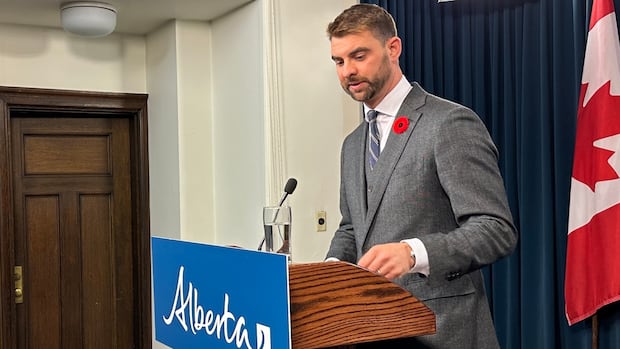Counselling therapists in Alberta are still without professional oversight despite a promise from the provincial government last year that they would be regulated by now.
In March 2024, Dan Williams, then the province’s minister of mental health and addiction, announced that the College of Alberta Psychologists would regulate counselling therapists. At the time, the government expected new regulations would be put in place by 2025.
Eighteen months later, the College of Alberta Psychologists is still waiting for provincial funding to develop a code of conduct, practice standards and educational requirements.
The Association of Counselling Therapy of Alberta (ACTA), a group that was formed in 2018 to lay the foundations for a new counselling therapy college, is still waiting for a plan to get the work done.
Laura Hahn, the CEO and registrar of ACTA, said the government has been very positive about making the change so she can’t understand what’s getting in the way.
“The [government] announcement was really clear that this was going to be completed in 2025,” she said. “So there was a tight timeline to get that work done.”
Richard Spelliscy, CEO and registrar for CAP, said his organization met with government officials in June to discuss the funding proposal but hasn’t heard anything since then. Spelliscy declined to say how much CAP was seeking.
A spokesperson for Rick Wilson, minister of mental health and addiction, did not provide reasons for the delay in a statement to CBC News.
“The Ministry of Mental Health and Addiction is continuing to work toward regulating counselling therapists,” wrote press secretary Nathaniel Dueck. “While we do not have revised timelines to share at this time, we expect work to resume this fall.”
The former NDP government passed the Mental Health Services Protection Act in 2018 that would create a new College of Counselling Therapy of Alberta when a future regulation was proclaimed into law.
ACTA was formed to lay the groundwork for the new college by setting up standards of practice, a code of ethics, regulations and competencies for counsellors.
‘Quit dawdling,’ NDP critic says
But that changed once the UCP came into power in 2019.
Cabinet was expected to proclaim the CCTA regulation in 2021, but ACTA received a letter from former health minister Tyler Shandro in September of that year stating the CCTA was no longer a priority of the government.
ACTA continued to advocate for the new professional college. The government said it had heard concerns from First Nations, so ACTA obtained letters of support from the grand chiefs of Treaty 6 and Treaty 8. Two weeks later, Williams announced that CAP would regulate counselling therapists.
Laura Hahn, registrar and CEO of the Association of Counselling Therapists of Alberta, is frustrated over the lack of progress from the the provincial government. (Google Meet )
Williams was moved from mental health and addiction to municipal affairs after a cabinet shuffle in May. Hahn said the new minister, Rick Wilson, has been positive about a changeover, but she still wants to see more progress on the file.
Hahn is concerned that the lack of a regulatory framework is allowing anyone regardless of their training to call themselves a counselling therapist, putting vulnerable people at risk.
People who have the proper training are leaving Alberta for other jurisdictions that are regulated and allow them to work to their full scope of practice, Hahn said. They also can’t take on First Nations clients because non-insured health benefits only cover the services of regulated professionals.
“It’s in the public interest to regulate,” Hahn said. “I think that’s the piece that I keep coming back to is it shouldn’t be an option to be regulated and work in health care.”
Calgary-Currie MLA Janet Eremenko, the NDP critic for mental health and addiction,said the delay makes her question whether the government is serious about protecting the safety of Albertans who seek mental health treatment.
Eremenko is urging Wilson to “quit dawdling” and move quickly on regulation.
“For a government that claims to have invested unprecedented amounts of money in the development of Recovery Alberta, for example, it’s amazing to me that they haven’t expedited this process to be able to provide better access to mental health services,” she said.

